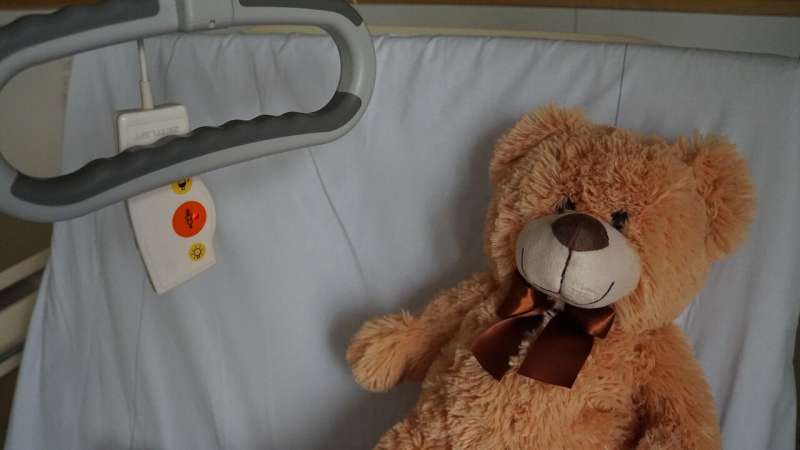One in four children want better pain treatment

Inselspital (University Hospital of Bern) and the University of Bern have conducted a major study on pain treatment in children at twelve centers in four European countries. Analysis of the data revealed a need for optimization in nearly one in four children. The research team has discovered possibilities to reduce the use of opioid analgetics after surgery as a precautionary measure.
A great need for better pain treatment
After an appendectomy, a quarter (24.8%) of all children wanted a stronger pain treatment in the first 24 hours after their operation. Among children who had a tonsillectomy, this was one-fifth (20.2%). Analysis of the data showed that this desire was primarily associated with sleep impairments and with movement pain. The lead author of the study, Prof. Ulrike M. Stamer, explained: "We are dealing with a large number of affected patients. Appendectomies and tonsillectomies are the most common operations performed on children overall. Just under a quarter of these cases strongly signal a desire for improvement".
A comprehensive, multicentre study
This study is based on the international pain registry "PAIN OUT infant", which was established in 2015 to track the quality of postoperative pain management in children. The study included 472 children with appendectomies and 466 children with tonsillectomies. More pain-related impairments and side effects were reported in children who wanted a stronger pain treatment. They also received more opioids postoperatively (on average 81 versus 50 micrograms per kilogram of body weight).
Surprising result shows the way to optimisation
A surprising result emerged from the analysis of the survey data and a comparison with the medication used before and during the operations. It was found that children who had been given at least two different classes of non-opioid analgesics (NSAIDs, metamizole or paracetamol) as a precautionary measure were significantly less likely to ask for a stronger pain treatment when questioned 24 hours after surgery. Prof. Frank Stüber, head of the Department of Anesthesiology at Inselspital (University Hospital of Bern) is optimistic: "We have been able to identify a promising path with these study results. Precautionary administration of at least two different classes of non-opioid analgesics appears to be a way to reduce the use of higher doses of opioids after surgery".
More information: Ulrike M. Stamer et al, 'Desire for more analgesic treatment': pain and patient-reported outcome after paediatric tonsillectomy and appendectomy, British Journal of Anaesthesia (2021). DOI: 10.1016/j.bja.2020.12.047



















